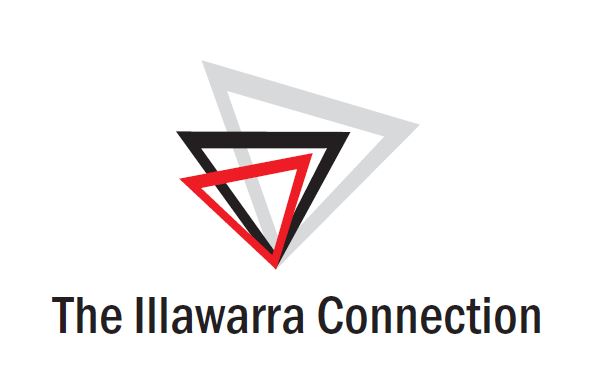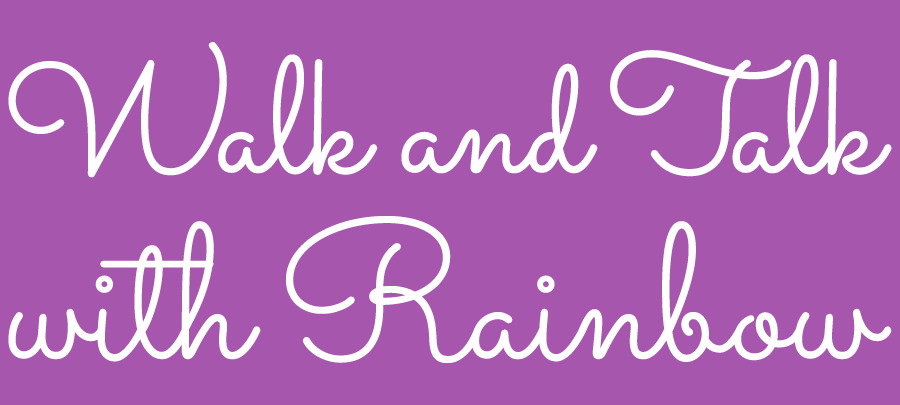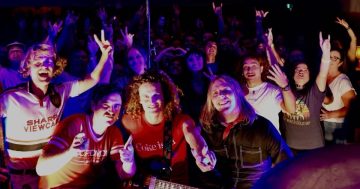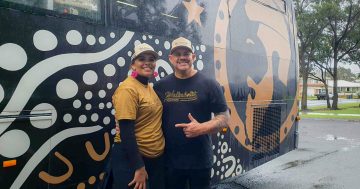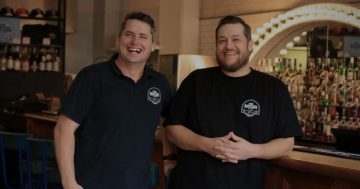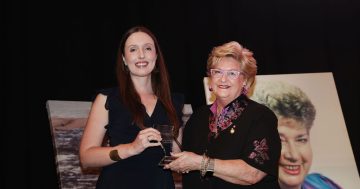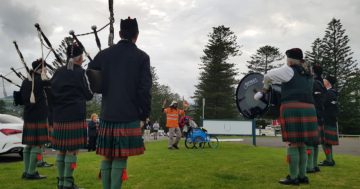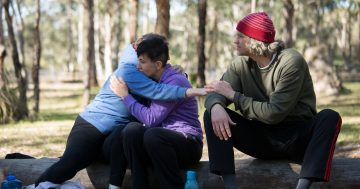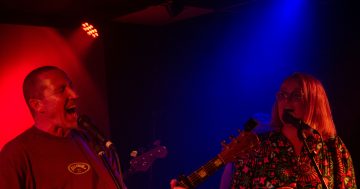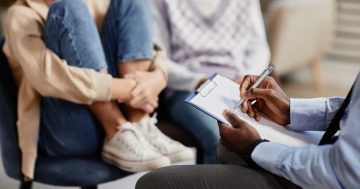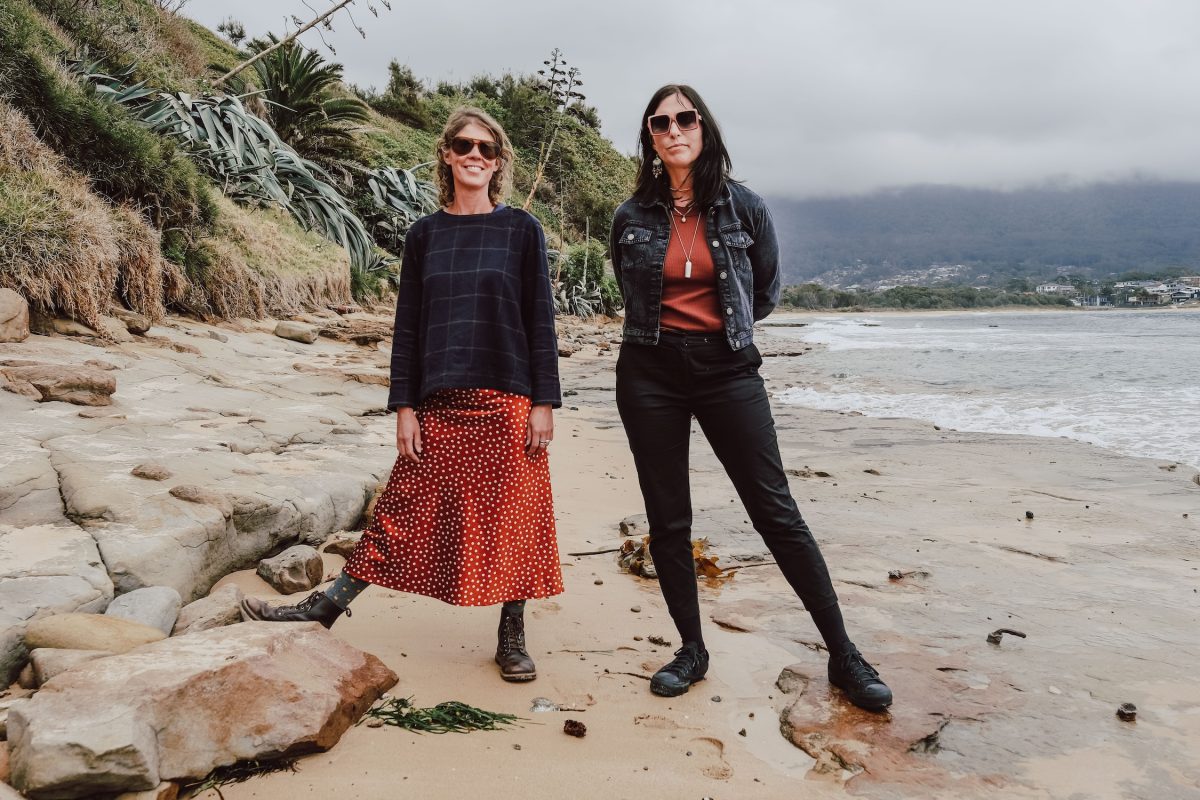
Lizzie Rose and Caitlin Marshall draw inspiration from Sandon Point and other locations on Dharawal Country, tapping into the ancient wisdom of Indigenous people. Photo: Alice McConnell.
You don’t have to be good at art for art to be good for you. This is the message of social worker Caitlin Marshall and educator Lizzie Rose who have spent years finding creative ways for people to improve their mental health.
In their new book Creative First Aid: The Science + Joy Of Creativity For Mental Health, the Illawarra women dispel the myth that creativity is only for people with “talent” or the money and leisure time for lessons or big projects.
Creativity is for everyone and we all have it, they say. Creativity is not about criticism, judging or monetising. It’s about joy, feeling safe, releasing feel-good hormones, healing, fun and gently pushing your boundaries – in small steps.
“This is a book about mental health,” they write. “It’s also about creativity. We’re going to show you how we have helped people recover from trauma using creative first aid. We tell you their stories, show you the evidence, and give you the tools to try this for yourself – tools like self-compassion and charcoal pencils.”
Lizzie and Caitlin’s paths crossed in 2007 when they joined an informal singing group meeting in a Woonona garage.
“The more we sang, the more comfortable we got with being out of tune,” Lizzie says.
“Eventually, we got pretty good, but that wasn’t really the point. The point was how it made us feel. The zing on the back of your neck when you find harmony, and the buzz in your fingertips when a group of voices comes together in unison – there’s nothing else like it. A moment of pure joy.”
They founded MakeShift in 2013 in Lizzie’s Thirroul lounge room. Initially it was a grassroots skill-exchange program with workshops in beekeeping, beach fishing, weaving, painting and more. Workshops were held in backyards, art galleries and in nature.
“From these grassroots days, we noticed something amazing,” they write.
“People told us our classes helped them feel good: less worried, more open, less depressed, more curious. … [they] told us that being deeply immersed in the process of ‘making’ gave them respite from tricky states such as stress, anxiety, depression and overwhelm.
“When local GPs and psychologists reached out to let us know that they were referring their clients to our classes, it confirmed that we had developed a form of creative prescription, where the very act of making was having a profound and medicinal effect.”
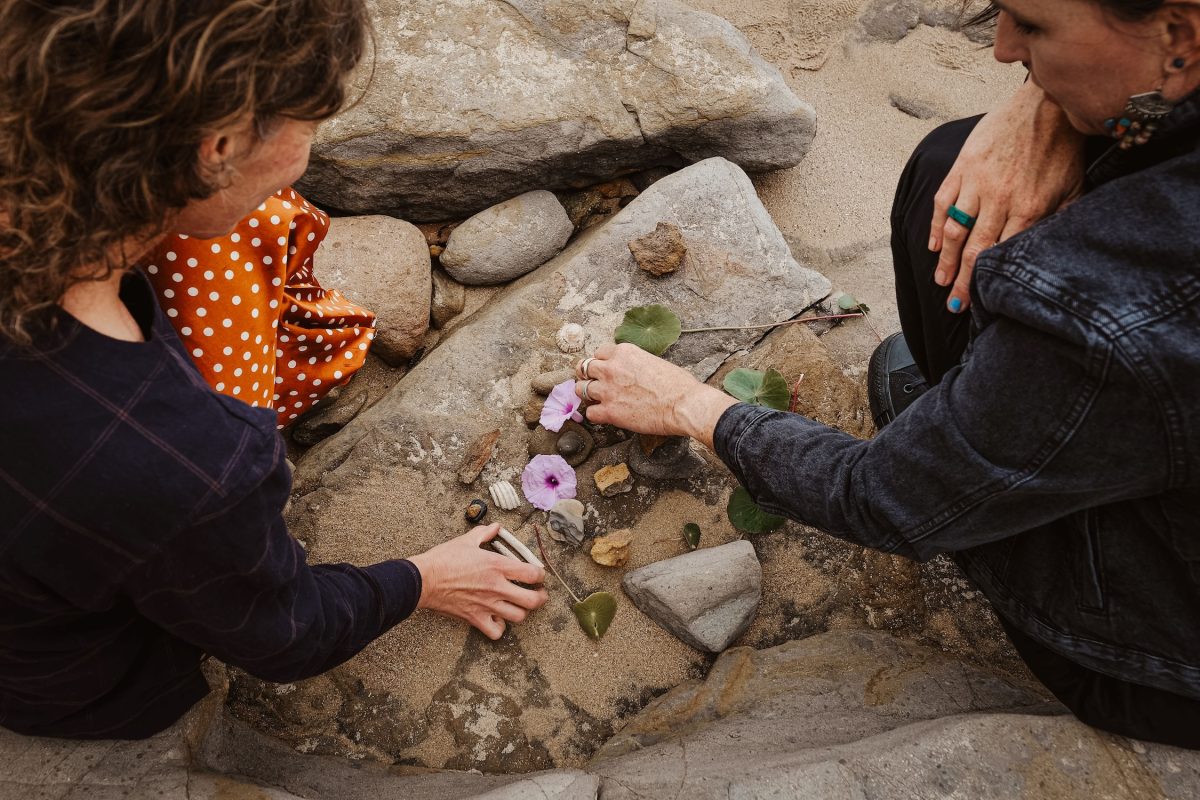
Lizzie and Caitlin say connecting with the natural world by collecting rocks, feathers or shells slows the mind and encourages delight. Photo: Alice McConnell.
Now MakeShift is an award-winning agency that provides mental health programs for communities, workplaces and groups throughout Australia. It is part of a global movement called Social and Creative Prescribing.
Their book Creative First Aid, with illustrations by Kiara Mucci, contains case studies of people recovering from trauma and stress who are putting themselves back together with a new-found love for ukulele playing or embroidery.
For example, Jenita, who is living with a brain tumour, found solace in floristry.
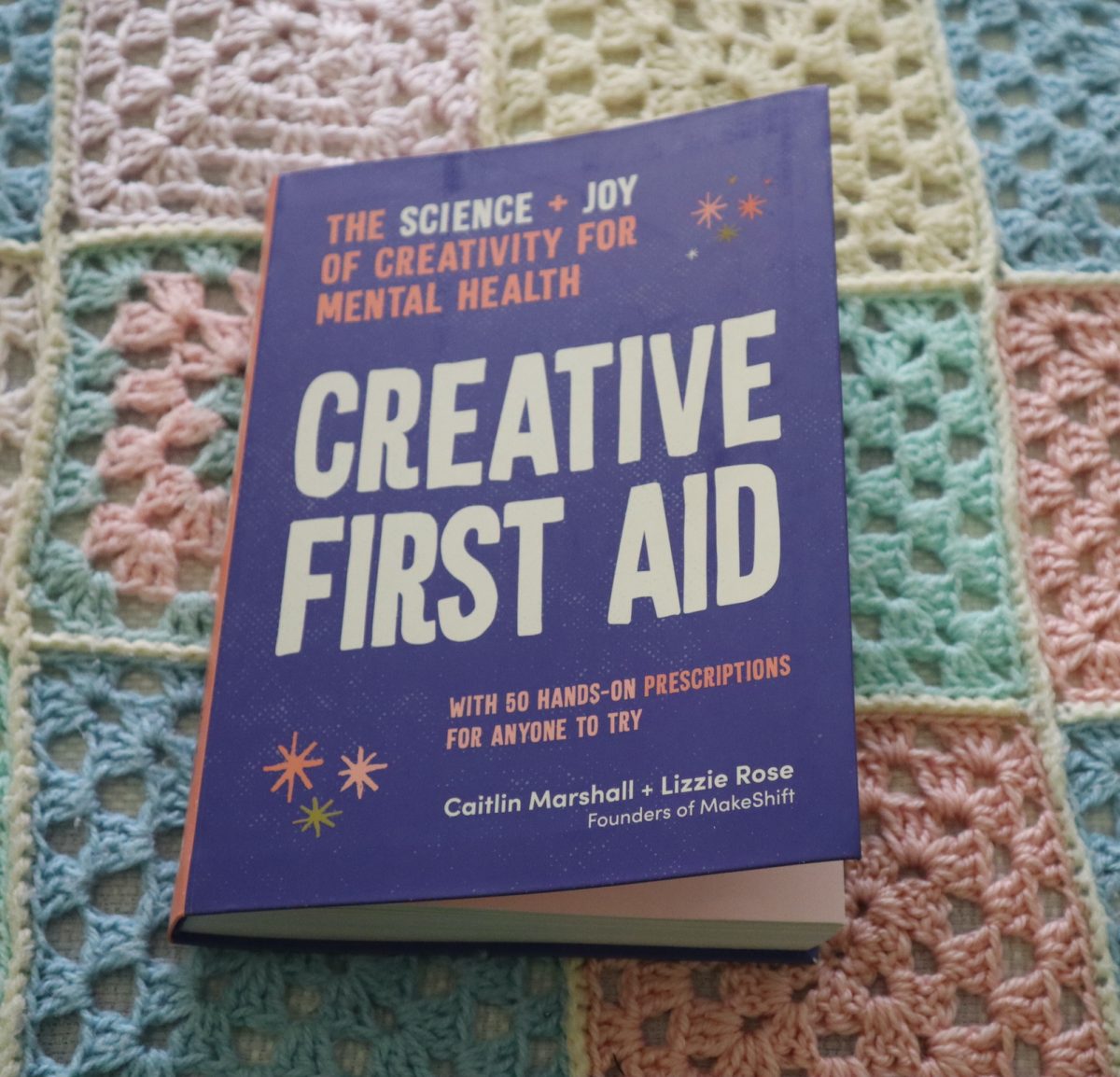
Creative First Aid contains ideas for anyone wishing to improve their mental health through small, affordable and achievable activities. Photo by Eileen Mulligan.
“Creative time became necessary for processing how I handled living with the tumour and for managing all the many care systems I had in place,” she says.
“I made creativity a part of my care plan. …. I can see the importance of it – and it is so good for my anxiety. To be honest, MakeShift saved my life. Flowers are so calming for me; they have become my medicine.”
Former police officer Leanne developed post-traumatic stress disorder after years of working with domestic violence and murder cases. She finds solace in furniture restoration. “I have to, or my mind starts racing too fast,” she says.
Caitlin and Lizzie write about the science behind their work and the benefit of releasing the feel-good hormones: dopamine, serotonin, oxytocin and endorphins.
Caitlin says: “Applying creative first aid can be game-changing for our nervous system, the intricate and complex network that comprises our brain, spinal cord and nerves. The nervous system controls most of what we do. It influences our breathing and what we think and feel. It is also the major navigator of how we respond to threat and joy.”
They include “creative prescriptions” you can try for yourself, such as dancing in the dark, bilateral drawing or playing with clay.
When Caitlin is stressed, she plunges into one of the many ocean pools in Dharawal Country, no matter the temperature.
Lizzie turns to photography to get through the messy times.
Creative first aid is not a replacement for conventional medicine or therapy. But it can be used alongside those treatments, they emphasise.
Caitlin and Lizzie will talk about their book at Thirroul Library on Wednesday 27 March at 6 pm. For bookings click here. For more information on MakeShift visit the website or Instagram.



